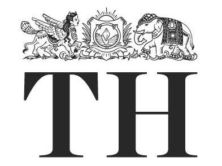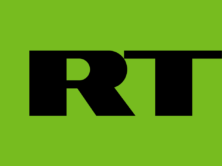DID THE TELEGRAPH BREAK THE UK PRESS COMPLAINTS COMMISSION CODE? The code, above, says not to publish names of children in sex offense cases. (Credit: PCC, screenshot)
The UK Telegraph, one of the publications added to WikiLeaks’ list of “media partners” with this week’s Gitmo document dump, fully named an alleged teen rape victim in its reporting on the latest document dump.
The boy was allegedly raped “at the age of 15, just prior to being transferred to the camp.” The boy was later released without any charges against him.
Journalism.co.uk suggested that the UK media regulatory group, the Press Complaints Commission, may see complaints over the boy’s naming because its editors’ code of conduct bars the media from identifying “children under 16 who are victims or witnesses in cases involving sex offences.”
WikiLeaks also didn’t redact the boy’s name, but The Guardian reportedly “blacked out the text relating to the alleged assault.”
In a statement to Journalism.co.uk, The Telegraph backed its use of the boy’s full name and noted that WikiLeaks backed its decision. The statement in part read:
“The Daily Telegraph takes its responsibilities when releasing confidential documents very seriously, but we believe this information is crucial for full public understanding of Guantánamo Bay. The newspaper has a long track record of redacting documents when necessary, including the release of hundreds of files relating to MPs expenses and the US diplomatic cables.”
The Telegraph noted that it “decided to make only minimal redactions” and somewhat took a shot at either the Guardian or the New York Times (or maybe both!) in its comment that “We have been alarmed at the reports of the apparent cavalier handling of data by former partners of WikiLeaks, which led to their relationships with the organisation breaking down.”
The New York Times and the Guardian are both former “media partners” of WikiLeaks; however both attribute their exclusion from WikiLeaks group of media outlets to see leaks in advance to Julian Assange’s dislike of their critical reporting on him. The New York Times received a copy of the Gitmo leak from an anonymous source and passed that copy on to both National Public Radio and the Guardian so all three outlets were able to publish stories around the same time as the Telegraph and other outlets given the documents by WikiLeaks.
The Guardian’s David Leigh reportedly commented to Journalism.co.uk about the Telegraph’s naming the boy and publishing other “unverified accusations.”
Leigh called it “totally scandalous…the most irresponsible thing that I can imagine.” He explained that the Guardian and the New York Times redacted names of people who had “unverified accusations against” them in the documents and commented that both WikiLeaks and the Telegraph hadn’t.
WikiLeaks has also called itself “the world’s most efficient non-profit organization,” writing on Twitter that it offers “global change for under $2m per year.” In that tweet, WikiLeaks cited an Associated Press article reporting that the Wau Holland Foundation said WikiLeaks brought in $1.9 million in donations in 2010 — about $585,000 from the foundation itself.
The Telegraph published its full Guantanamo files database on 764 detainees. WikiLeaks has published 763 of 779 files as of late afternoon yesterday. WikiLeaks has also published about 3,500 more cables in its Cablegate leak [as of April 25, WikiLeaks published 7,579 of 251,287 cable documents. As of last night, 11,098 documents had been published].
The New York Times noted that lawyers of Guantanamo detainees have been instructed not to view the Gitmo documents published by WikiLeaks and news organizations because they’re still considered “legally classified.”
“Because the lawyers have security clearances, they are obligated to treat the readily available files “in accordance with all relevant security precautions and safeguards” — handling them, for example, only in secure government facilities, said the notice from the department’s Court Security Office.”
We are writing to various parties involved in this case and will report any responses here in an update.
UPDATE: 5/3/2011 8:03 AM EST: The Press Complaints Commission’s Jonathan Collett responded to iMediaEthics’ e-mail inquiry that “The PCC has not received any complaints about this story.”






